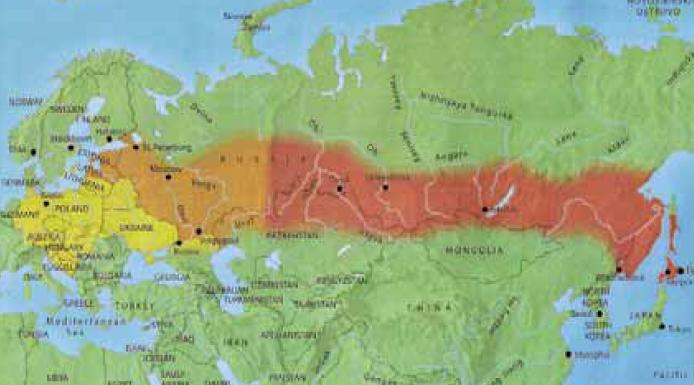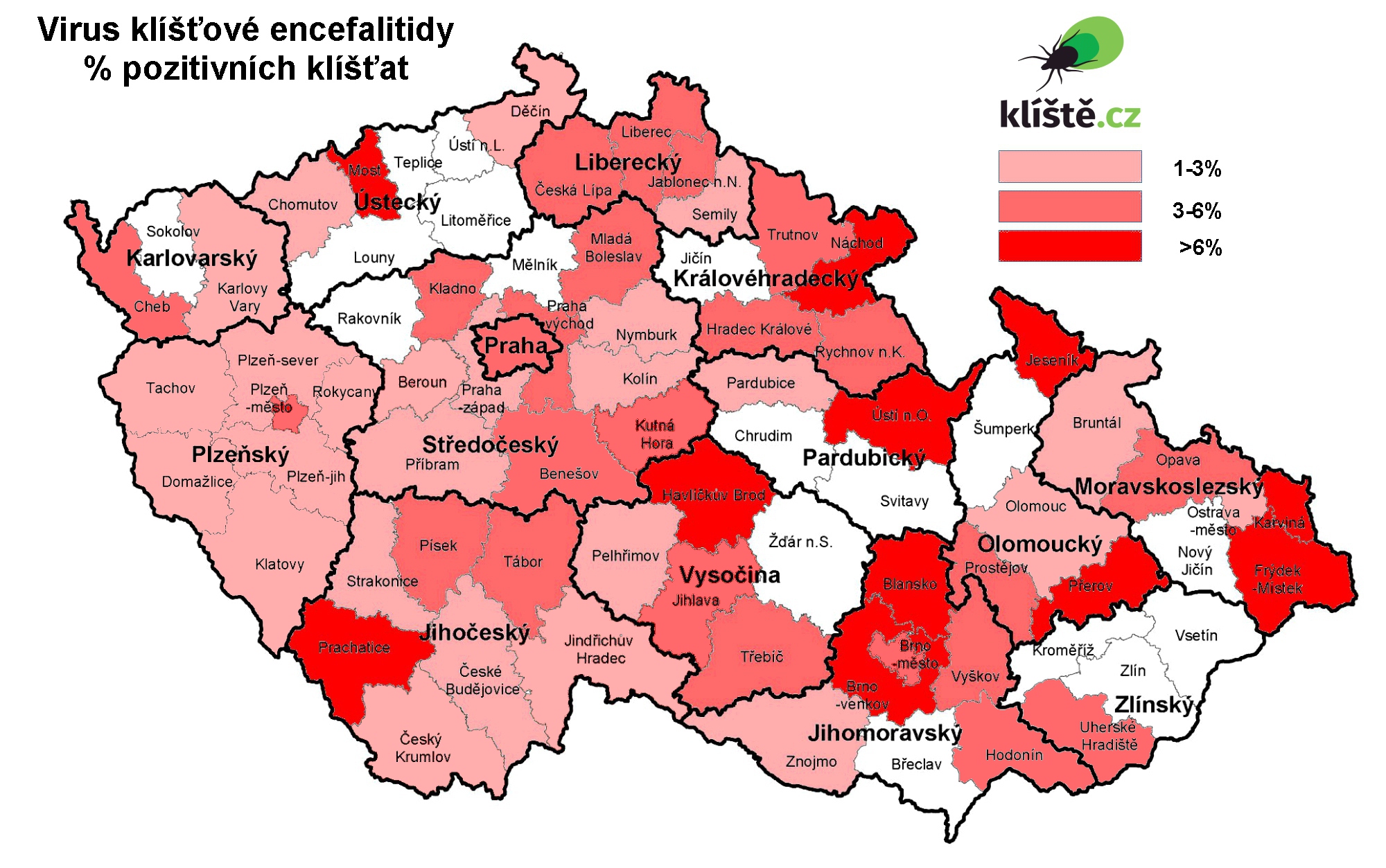Tick encephalitis
This inflammatory disease of the brain and meninges is caused by the Tick-born encephalitis virus (TBEV), a virus of the Flaviviridae family. Ticks get infected by the virus when sucking animal blood. Human infection is most often caused by an infected tick bite, but cases of infection from non-pasteurized milk or dairy products have also been observed.
The rate of infected ticks in the Czech Republic is about 4%, but this rate may vary depending on the respective locality. In localities described as a so-called "natural focus of infection" this rate may be several times higher. Such localities often include humid and warm river basins with abundant vegetation.
This disease also occurs outside of Central Europe with its spread reaching up to the Baltic countries. The Asian subtype of the virus stretches from Ural through Central Asia to Japan. This subtype's infectious ability is much higher, and the disease development is more serious.

Disease development
When the virus enters the human body, an incubation period of 7 to 14 days begins. The disease begins with atypical influenza symptoms, such as weariness, pain in muscles and joints, headaches and low fever. These problems prevail for several days, after which they disappear, and the patient feels healthy. In healthy individuals, very often immunity against the virus is acquired and no more symptoms appear. Hidden development of the disease without any symptoms may also take place. However, in other cases, the disease progresses and after a few days of apparent health other clinical symptoms appear, which are much more serious. The disease may take on several forms. Most often, the brain's higher centers and meninges are attacked by the virus. Typical symptoms include headaches, vomiting, photophobia, tremor, apathy, vertigo and high fever.
If the lower centers of the brain are attacked (the bulbo-cervical form) a more serious condition may develop. The latter form is life-threatening, because it may cause cessation of vital functions such as respiration or heartbeat. Another (encephalomyelitic) form attacks the shoulder girdle and is usually accompanied by asymmetric paralysis of the upper extremity. The paralysis appears in the early reconvalescent stage, i.e., within a week after the decline of fever.
The disease may be accompanied by complications such as paralysis of cranial nerves, hearing disorders, and the occurrence of post-encephalitic syndrome that affects about 10% of patients and restricts them for weeks or even months. Its symptoms include concentration and memory disorders, insomnia, reduction of performance and mental anxiety. Mortality rate of tick-borne encephalitis is low - 10 to 30 deaths a year in Europe, mainly deaths of elderly patients.
There are two stages of this disease:
I. The symptoms may resemble an atypical flu infection of air passages with fever. At this stage the virus propagates. In some patients the disease may develop into the second stage.
II. This serious form of the disease is connected with the virus attacking the central nervous system. The intensity of symptoms depends on the individual dispositions and physical strain. Hence bed rest is necessary.
Number of patients
The number of cases of tick encephalitis in the Czech Republic is about 620 reported diseases per year. The information was taken from the State Health Institute database.

Treatment
We should emphasize that there are no available drugs effective against this virus (virostatics). The most effective means of protection from this disease is immunization by vaccination. In case of an infected tick bite, we recommend you reduce stress and physical strain and support the immunity of your body by a sufficient supply of vitamins and other support.
Overview of infected tick incidence
Maps of infected tick incidence were assembled based on ticks analyzed in Protean s.r.o. laboratories.
